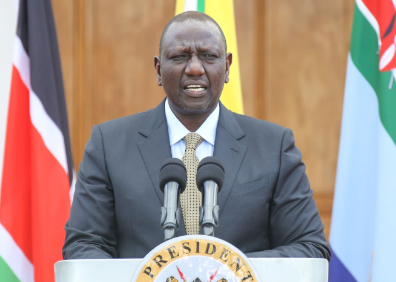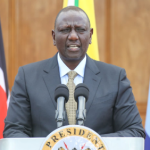President William Ruto succumbed to mounting public pressure, announcing on Wednesday that he would not sign the contentious Finance Bill 2024.
The latest comes after a week of protests across the country, primarily led by Kenyan youth who claim the punitive tax proposals will burden an already stretched population.
President Ruto, speaking at the State House, flanked by allied members of parliament, said that after listening to Kenyans who overwhelmingly rejected the Bill, he would not sign it into law.
“Having reflected on continuing the conversation around the Finance Bill, and listening to the Kenyan people who say they want nothing to do with this Bill, I concede,” President Ruto said.
“Therefore, I will not sign the Finance Bill 2024 and it shall be subsequently withdrawn and I have agreed with these members, that shall become our position.”
BREAKING: President Ruto declines to sign Finance Bill 2024
Listening keenly to the people of Kenya who have said loudly that they want nothing to do with this Finance Bill 2024, I concede and therefore I will not sign the 2024 Finance Bill and it shall subsequently be withdrawn pic.twitter.com/eoi6kjvyEe
— Citizen TV Kenya (@citizentvkenya) June 26, 2024
President Ruto also stated that he would engage Kenyan youth to hear their perspectives and concerns.
“I propose an engagement with young people of our nation to listen to their issues and agree with them on their priority areas of concern.” He said.
He stated that moving forward, Kenya will need to engage in a multi-sectoral conversation about the public debt and the country’s future.
“I also propose that within the next 14 days, a multi-sectoral, multistakeholder engagement be held with a view to charting the way forward on matters relating to the content of the bill as well as auxiliary issues raised in recent days on the need for austerity measures and strengthening our fight against corruption.”
During his address, President Ruto also called for immediate austerity measures to reduce spending.
He stated that this would begin with the presidency and then spread to the executive branch of government.
During his Thursday address, Ruto directed a reduction in expenditures in the executive branch of government, including the elimination of confidential costs, travel expenses, hospitality, motor vehicle purchases, and renovations, among others.



